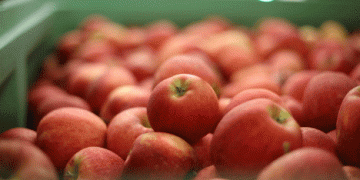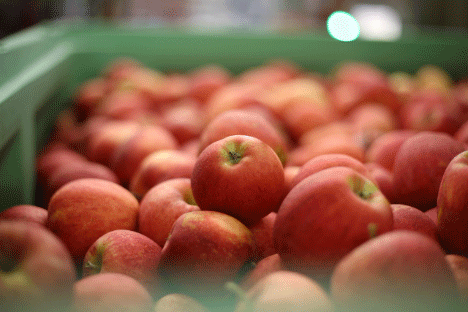The apple harvest in Saxony-Anhalt has experienced a dramatic collapse this year, falling from 12,000 tons in 2023 to only 2,000 tons in 2024. This 83% decline has had severe economic consequences, with the estimated financial damage reaching up to €30 million. The causes behind this sharp drop in yield are mainly linked to adverse weather conditions, particularly spring frosts, which devastated many orchards in the region.
Frost as the Main Culprit
The spring frosts in 2024, which struck at critical points during the apple blossoming period, were the primary cause of the harvest failure. Cold snaps during blossom formation can severely reduce fruit set, leading to significantly lower yields. Frost damage is particularly challenging in regions like Saxony-Anhalt, where apple production is a key agricultural activity.
The economic impact of this poor harvest is already being felt across the region, as apple growers face not only a loss of income but also the need to cover fixed costs such as labor, equipment, and orchard maintenance. With fruit yields so low, some farms may struggle to remain profitable without immediate intervention.
Calls for Frost Protection and State Aid
Farmers in Saxony-Anhalt are urging authorities to implement frost protection measures to mitigate the effects of similar events in the future. Among the measures being discussed are frost fans, sprinkling systems, and anti-frost heaters, all designed to help prevent temperature drops from damaging delicate blossoms. However, these solutions can be costly, and farmers are asking for government support to help cover the investment in such infrastructure.
In response to these concerns, Saxony-Anhalt’s Agriculture Minister, Sven Schulze, has voiced his support for the farmers’ calls for assistance. Minister Schulze emphasized the importance of frost protection but also noted that agricultural businesses need to adapt to the changing climate and weather patterns over the long term. “We must not only address the immediate crisis but also help farmers prepare for future climate challenges,” Schulze said, urging a forward-thinking approach to climate resilience.
Adaptation Strategies
The sharp decline in this year’s apple harvest is not just a one-off event but may signal a larger trend as climate change continues to affect agriculture. To remain viable, apple growers may need to adopt new strategies to mitigate weather risks. This could include:
- Diversifying Crops: Growing multiple fruit varieties that bloom at different times could spread the risk of frost damage.
- Improved Forecasting: Advanced weather forecasting and real-time data monitoring can help farmers prepare for frost events more effectively.
- Climate-Resilient Varieties: Research into frost-tolerant apple varieties could offer long-term solutions, allowing farmers to better withstand cold spells.
The dramatic drop in Saxony-Anhalt’s apple harvest serves as a stark reminder of the vulnerability of agriculture to climate-related events. While immediate solutions like frost protection and state aid are crucial, long-term adaptation strategies will be key for apple growers to continue thriving in an increasingly unpredictable climate. The future of apple farming in Saxony-Anhalt, and indeed across Europe, will depend on how quickly and effectively these measures are implemented.































